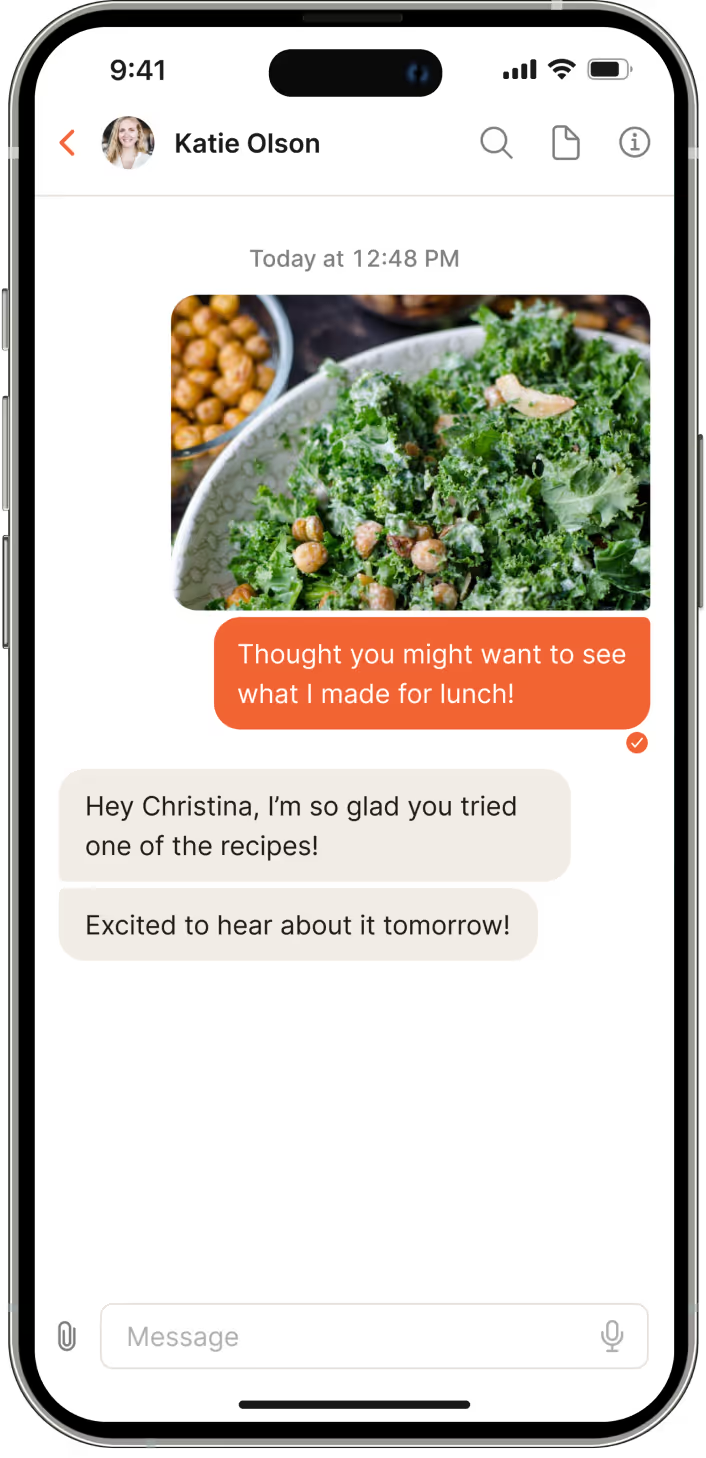Best Food Allergy Nutritionists Near Me
94% of Nourish patients pay $0 out of pocket!


Our team of dietitians can support all areas of your health
Our team of nutritionists are skilled in numerous specialties. Whether your needs revolve around sports, weight loss, a chronic illness, or navigating a pregnancy, our professionals are prepared to provide the right nutritional guidance.









Personalized nutrition planning
We offer virtual one-on-one sessions with dietitians to discuss preventative actions that can be taken to address your health concerns. We educate, assess lifestyle changes, help plan your nutrition, and support our clients toward long-lasting success using personalized nutrition counseling.
Convenient, virtual appointments
Receive the highest quality care wherever you are most comfortable. You get access to your dietitian virtually anytime, anywhere. No more driving to appointments. No more waiting around.
Avoiding future complications
The payoff you’ll see for adjusting your lifestyle with nutrition counseling will be tremendous for your health. You’re less likely to suffer from a heart condition, kidney failure, and other serious conditions with the proper discipline and determination that we help provide.
We’ve got answers.
Still deciding if we’re right for you? These frequently asked questions may help.

What tests detect food allergies?
An allergist or immunologist uses a combination of tests to diagnose food allergies. These may include skin prick tests, blood tests, and food challenges.
It’s important to note that the blood tests used by allergists test for IgE antibodies. Though IgG tests are marketed to help identify food allergies and sensitivities, they have not been proven accurate in identifying allergies.
Can a dietitian diagnose a food allergy?
An allergist or immunologist diagnoses food allergies through a series of tests. Though a registered dietitian cannot diagnose a food allergy, they can help you identify food intolerances and sensitivities in your diet that may be causing you symptoms.
It’s important to distinguish food allergies from food sensitivities and intolerances. Food allergies result in an immune response that can be life-threatening. Food intolerances, like lactose intolerance, may cause digestive upset but do not involve the immune system.
What are the common types of food allergies?
Around 8% of children and over 10% of adults in the US have at least one food allergy. There are nine top allergens, which represent the most common foods to trigger allergic reactions:
- Cow’s milk.
- Eggs.
- Wheat.
- Peanuts.
- Tree nuts.
- Sesame.
- Fish.
- Shellfish.
- Soy.
How can a nutritionist help with food allergies?
If you’ve been diagnosed with a food allergy, you must completely eliminate the allergen from your diet. A registered dietitian can help you learn how to read food labels and provide allergen-friendly meal tips and recipes.
If you have multiple food allergies, getting all the vitamins and minerals you need can be especially challenging. A dietitian can create an eating plan that ensures you meet all of your nutritional needs.
If you have young children, a registered dietitian can also advise on strategies for preventing food allergies, such as frequent exposure to peanuts from a young age.
How can I find a <Name> dietitian who accepts my insurance?
Nourish has <Name> dietitians in-network with major insurers like Blue Cross Blue Shield, United Healthcare, Aetna and Cigna. 95% of Nourish patients pay $0 when using insurance.
Are video visits with a dietitian online for <Name> covered by insurance?
Check your coverage to see if Nourish accepts your insurance plan.
What to expect during a visit with a dietitian that specializes in <Name>?
During your first appointment with a dietitian, you can expect to review your medical history, eating habits, and lifestyle. You’ll get to know your dietitian and you’ll have the opportunity to ask them any questions you have.
How can I find an online video visit with a dietitian that can help with <Name>?
Nourish offers completely virtual appointments that can help address <Name>.
How can I book a nutrition appointment online for <Name>?
Nourish offers completely virtual nutrition appointments and is covered by insurance. You can find a dietitian that’s right for you and filter by condition.
How can I see a dietitian that can help with <Name>?
Nourish has dietitians that specialize in <Name> that can help. Nourish uses evidence-based, personalized nutrition therapy so you feel your best.
A registered dietitian can also help with the following related <Name> conditions:
How can a dietitian help with food allergies?
Dietitians, as registered healthcare professionals specializing in nutrition, typically do not perform diagnostic testing for food allergies themselves. Diagnosing food allergies requires medical expertise and specialized testing, which is typically conducted by allergists or other qualified healthcare providers.
1. Identifying Allergens: A dietitian can help you identify the specific allergens causing your symptoms. They can guide you through the process of eliminating potential allergens from your diet and help you keep track of your symptoms and food intake to determine the trigger foods.
2. Nutritional Guidance: Once your food allergies are identified, a dietitian can help you create a safe and balanced diet that avoids the allergenic foods while ensuring you meet your nutritional needs. They can provide guidance on alternative food choices, meal planning, and label reading to help you navigate your dietary restrictions.
3. Nutrient Adequacy: Eliminating certain foods due to allergies can increase the risk of nutrient deficiencies. A dietitian can help you ensure that you're getting all the necessary nutrients through appropriate substitutions and strategic food choices. They can also recommend suitable supplements if needed.
4. Hidden Allergens: Food allergies can be challenging to manage since allergenic ingredients can be present in unexpected places. A dietitian can help you identify hidden sources of allergens in processed foods, dining out, and ingredient lists, reducing the risk of accidental exposure.
5. Meal Planning and Recipe Modification: A dietitian can assist you in creating meal plans and modifying recipes to accommodate your food allergies. They can suggest alternative ingredients, cooking methods, and recipes that are safe and enjoyable.
6. Education and Support: Dietitians can educate you about food allergies, including how to prevent cross-contamination, read food labels effectively, and advocate for your needs in different settings. They can also provide emotional support and help you navigate social situations that involve food.
Do dietitians test for food allergies?
Dietitians, as registered healthcare professionals specializing in nutrition, typically do not perform diagnostic testing for food allergies themselves. Diagnosing food allergies requires medical expertise and specialized testing, which is typically conducted by allergists or other qualified healthcare providers.
However, dietitians can play a crucial role in the management of food allergies once a diagnosis has been established. They can work alongside allergists and healthcare teams to develop individualized dietary plans, provide guidance on allergen avoidance, and help ensure that the individual's nutritional needs are met while avoiding allergenic foods.
If you suspect you have a food allergy, it is important to consult with an allergist or immunologist. These specialists have the necessary training and expertise to conduct diagnostic tests, such as skin prick tests or blood tests, to identify specific food allergies. They can also help determine the appropriate management strategies, which may involve working with a dietitian to develop a safe and nutritionally balanced diet.




%20Logo%20-%20vector69.com.svg)























.jpg)

